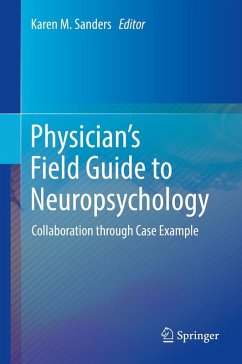This unique volume teaches those in the medical fields about the scientific value of neuropsychology in assessing cognition, the 6th vital sign, as part of well integrated collaborative care. It offers physicians a comprehensive tour of the many dimensions neuropsychology can add to primary and specialized medical care across the lifespan. Noted experts examine cognitive ramifications of a wide range of medical, psychological, and neuropsychological conditions, among them brain tumors, stroke, epilepsy, pediatric and adult TBI, schizophrenia, and adult ADHD. The book's generous selection of case examples demonstrates the benefits of cognitive assessment in building accurate diagnoses, better understanding of patient needs, and more appropriate treatment and management strategies, as well as other neuropsychologist roles in consulting, referral, and forensic areas. In addition, tables, callout boxes, review questions, and other features are included throughout the text for ease in comprehension and retention.
A sampling of the coverage:
· The value of neuropsychological evaluation in medical practice.
· A model of collaboration between primary care and neuropsychology.
· Neuropsychological assessment of extremely preterm children.
· Alzheimer's Disease and overview of dementia.
· Deep brain stimulation for Parkinson's Disease.
· Neuropsychology in the 21st century: the rise of multicultural assessment.
· Neuropsychological interventions for individuals with brain injury.
The Physician's Field Guide to Neuropsychology is both a rigorous and an accessible reference for clinicians in diverse disciplines including general practice, family medicine, neuropsychology, pediatrics, gerontology, and sports medicine.
A sampling of the coverage:
· The value of neuropsychological evaluation in medical practice.
· A model of collaboration between primary care and neuropsychology.
· Neuropsychological assessment of extremely preterm children.
· Alzheimer's Disease and overview of dementia.
· Deep brain stimulation for Parkinson's Disease.
· Neuropsychology in the 21st century: the rise of multicultural assessment.
· Neuropsychological interventions for individuals with brain injury.
The Physician's Field Guide to Neuropsychology is both a rigorous and an accessible reference for clinicians in diverse disciplines including general practice, family medicine, neuropsychology, pediatrics, gerontology, and sports medicine.
"The purpose is to increase knowledge about the field of neuropsychology and provide physicians with information about the utility of neuropsychological assessment in collaborative medical care. ... the book is aimed at physicians and residents in training." (Christopher J Graver, Doody's Book Reviews, September 06, 2019)








